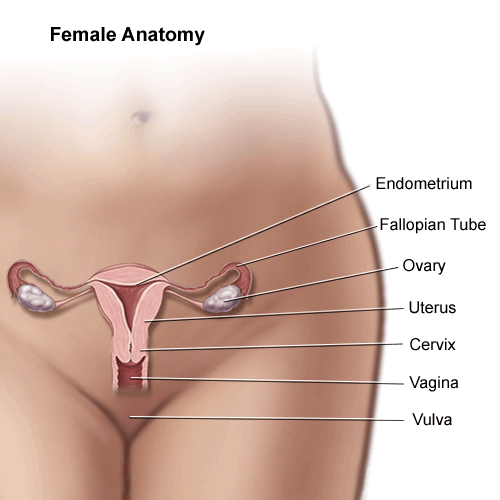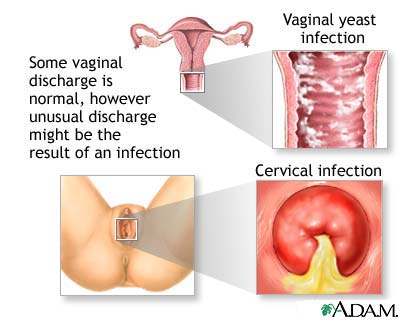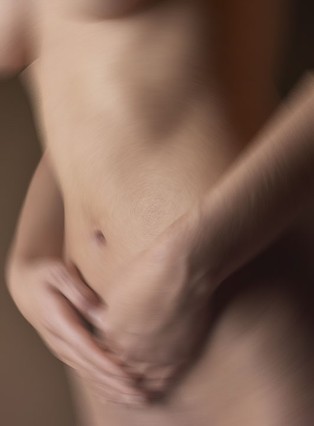First and foremost, let’s answer the most common question about vaginal discharge. Vaginal discharge is completely normal and is something every woman experiences. You body produced this fluid as a way to keep your vagina healthy and clean. The purpose is simple. This discharge carries the old cells that line your vagina out of your body. This helps prevent infection and the build up of bacteria. A normal discharge is usually completely clear although it may also be almost milky in appearance. Normal discharge will also not have an unpleasant odor. If you are ovulating your discharge will be thicker than normal as this is the time when your ovaries will release an egg.
During your menstruation cycle, during breastfeeding or during times of sexual arousal, the vaginal discharge will also be different, although how it will be different varies from woman to woman. All of these things are normal and should not cause you concern. They certainly don’t warrant a visit to your doctor. Any severe changes, however, may be an indication of vaginitis which is something you will need to seek medical attention for. If you aren’t sure whether the change your notice in your vaginal discharge is normal or not, you should always consult your physician. While it may be nothing to be concerned about, it is much better to err on the side of caution; especially where vaginal health is concerned.

Normal vaginal discharge has no smell. If you notice an odd odor, the origin of the odor is likely outside of the vagina in the vulva area. Keeping this area clean by simply washing it on a regular basis is the best way to avoid that odor. Some women feel that douching can be beneficial, but in truth, douching can actually be harmful. Most douches use harsh chemicals that can irritate your vagina and possibly even spread infections in your vagina to the uterus. An infection in your uterus greatly increases your changes of developing pelvic inflammatory disease. Pelvic inflammatory disease, or PIC, develops in your fallopian tubes and may prevent you from being able to conceive children. If you are able to conceive, the chances that you will successfully carry the child through to delivery is unlikely. Instead of douching, simply wash the vulva area with warm water and a gentle soap. Avoid anything with harsh chemicals or strong fragrances as this will only cause irritation.
Several things can cause changes in your vaginal discharge including your menstruation cycle, sexual arousal and breastfeeding. However, vaginitis, yeast infections, bacterial vaginosis, trichomoniasis, Chlamydia and gonorrhea also cause changes in vaginal discharge and knowing the difference between normal discharge and problem discharge can mean the difference between getting treated for an infection or disease and winding up with a much more severe problem. There are some conditions, particularly sexually transmitted diseases like Chlamydia and gonorrhea as well as yeast infections you will need to inform sexual partners about. These conditions can be spread to partners so they will likely need to be tested for them as well if you have had sex since you first noticed the symptoms or had sex shortly before the symptoms occurred. If you ever notice blood in your vaginal discharge between menstrual cycles you should contact your physician immediately as this may be the sign of one of the above mentioned problems or something even more serious. It may be nothing. Sometimes the vagina just becomes irritated and blood may appear, particular after your first sexual encounter, following vigorous sex or even during humid weather, but it is better to be safe than sorry.
Vaginitis is generally considered to be a preventable condition but it is also one of the most common conditions women suffer from. Keeping your vagina clean is one of the most important factors in preventing this condition. Bathing or showering every single day is important as it helps cleanse any bacterial build up outside of your vagina. Always pat dry your vagina to prevent irritation. If you notice irritation after protected sexual intercourse you may be having a reaction to the latex in the condom or the spermicidal agents or lubricant on the condom. The remedy for this problem is not to have unprotected sex. Instead, speak to your doctor about alternative protection options. Alternative birth control methods are a good option for someone who has only one regular, trusted partner, but that may not be the case for everyone. Remember, birth control pills, diaphragms, and other birth control methods will not prevent the spread of sexually transmitted diseases, so you will need condoms. There are options out there your doctor can help you discover, but it is important that you speak to them about those options.
Hot tubs are known for being a contributor to vaginitis. As much as you might enjoy a nice relaxing soak in a hot tub, it is best to avoid them on a regular basis. Once in a while is fine, but in general, a soak in the bath tub is much healthier and offers the same relaxation benefits. Cotton underpants can be very beneficial in the prevention of vaginitis as well. If you are going to wear underpants during the day, choose cotton underpants. They are not only comfortable but they allow your vagina to breathe. Remember though, as much as your mother may have told you ladies always wear underpants, you should never wear underpants at night unless you will be wearing a short skirt or dress. Underpants can irritate your vagina. Many women find it much more comfortable to not wear underpants at all. This does not mean you have to suddenly become promiscuous. It simply means you don’t find underpants uncomfortable.
Although many women know wiping your genitals from front to back after using the washroom is important, few women remember to do it all the time. Get in that habit. Wiping from front to back helps keep bacteria from your rectum from spreading to your vagina and reduces the chances of contracting vaginitis. In addition, while it isn’t always possible to avoid wearing pantyhose, tight pants, swim suits, tight shorts or leotards, especially during warmer months, don’t wear those items for longer than necessary. All of these things can irritate your vagina as they are constricting and don’t allow your vagina to breathe. You should also avoid menstrual pads or tampons that are perfumed. Taking these steps will allow your vagina to be much healthier.














